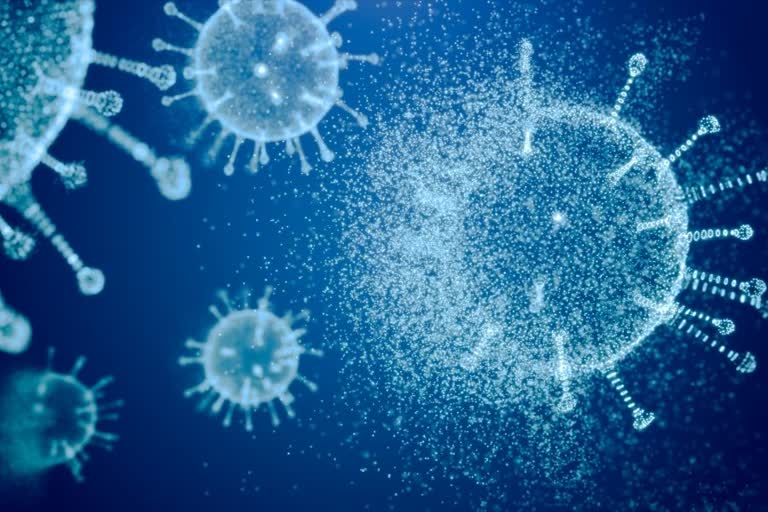It is controversial whether viruses are alive, but like all living things they do evolve. This fact has become abundantly clear during the pandemic, as new variants of concern have emerged every few months.
Some of these variants have been better at spreading from person to person, eventually becoming dominant as they out-compete slower versions of SARS-CoV-2, the virus that causes COVID-19.
This improved spreading ability has been ascribed to mutations in the spike protein, the mushroom-shaped projections on the surface of the virus that allow it to bind more strongly to ACE2 receptors. ACE2 are receptors on the surface of our cells, such as those that line our airways, that the virus attaches to in order to gain entry and start replicating.
These mutations allowed the alpha variant, and then the delta variant, to become globally dominant. And scientists expect the same thing to happen with omicron.
The virus cannot, however, improve indefinitely. The laws of biochemistry mean that the virus will eventually evolve a spike protein that binds to ACE2 as strongly as possible. By that point, the ability of SARS-CoV-2 to spread between people will not be limited by how well the virus can stick to the outside of cells. Other factors will limit virus spread, such as how fast the genome can replicate, how quickly the virus can enter the cell via the protein TMPRSS2, and how much virus an infected human can shed. In principle, all of these should eventually evolve to peak performance.
Has omicron reached this peak? There is no good reason to assume that it has. So-called gain-of-function studies, which look at what mutations SARS-CoV-2 needs to spread more efficiently, have identified plenty of mutations that improve the spike protein's ability to bind to human cells that omicrondoesn't have. Besides this, improvements could be made to other aspects of the virus life cycle, such as genome replication, as I mentioned above.
But let's assume for a second that omicron is the variant with maximised spreading ability. Perhaps omicron won't get any better because it is limited by genetic probability. In the same way that zebras haven't evolved eyes at the back of their heads to avoid predators, it's plausible that SARS-CoV-2 can't pick up the mutations required to reach a theoretical maximum as those mutations need to occur all at once, and that is just too unlikely to emerge. Even in a scenario where omicron is the best variant at spreading between humans, new variants will emerge to handle the human immune system.
After infection with any virus, the immune system adapts by making antibodies that stick to the virus to neutralise it, and killer T-cells that destroy infected cells. Antibodies are pieces of protein that stick to the specific molecular shape of the virus, and killer T-cells recognise infected cells via molecular shape as well. SARS-CoV-2 can therefore evade the immune system by mutating sufficiently that its molecular shape changes beyond the immune system's recognition.
This is why omicron is so apparently successful at infecting people with previous immunity, either from vaccines or infections with other variants, the mutations that allow the spike to bind to ACE2 more strongly also reduce the ability of antibodies to bind to the virus and neutralise it. Pfizer'sdata suggests that T-cells should respond similarly to omicron as to previous variants, which aligns with the observation that omicron has a lower fatality rate in South Africa, where most people have immunity.
